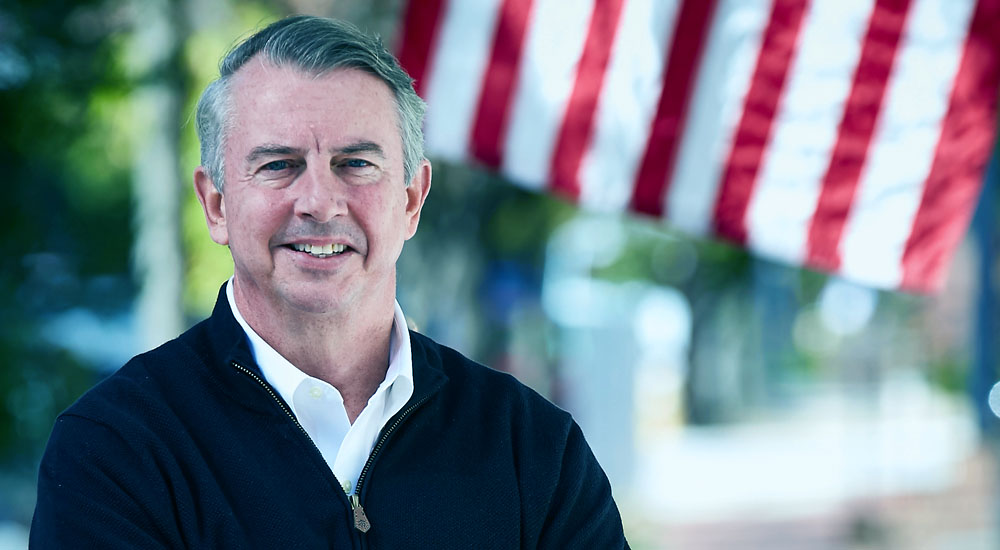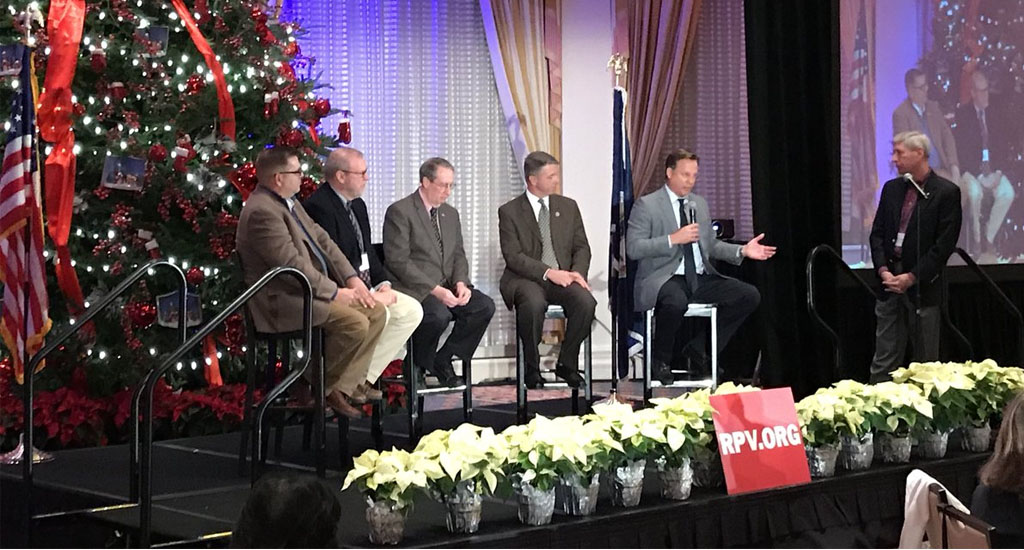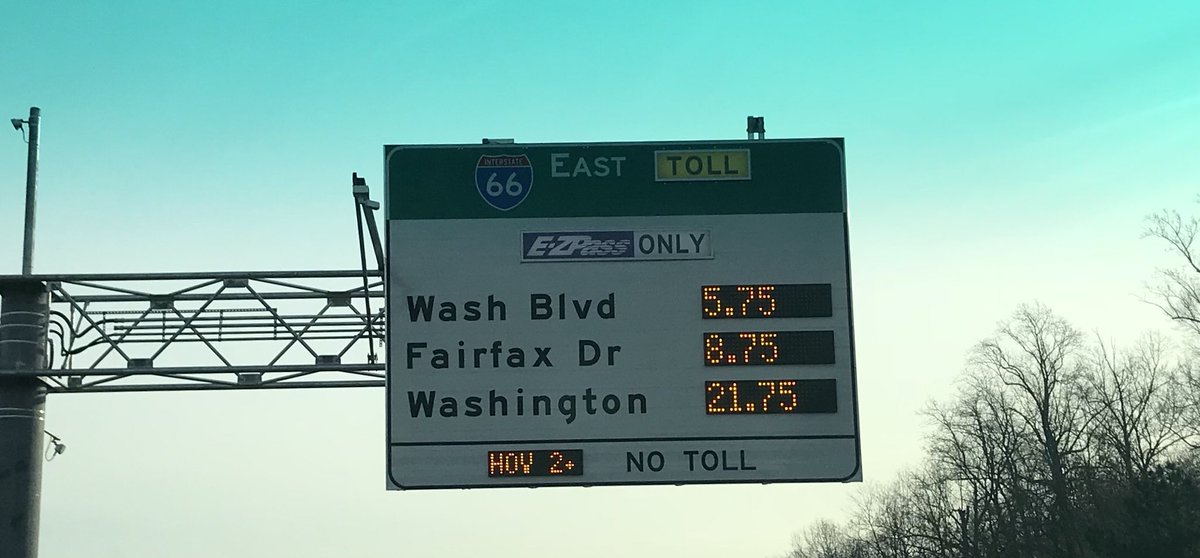Gillespie sets the record straight, slams the media narrative, and shows the depth of character anyone who comes to know the man will instantly respect.

Virginia's Public Square
Virginia's Public Square

Gillespie sets the record straight, slams the media narrative, and shows the depth of character anyone who comes to know the man will instantly respect.

One suspects that GO Virginia is attempting to get ahead of the automation curve by managing the outcomes (and the winners and losers).

We can’t just have Friedman and Reagan on our reading lists, we have to have Hunter S. Thompson and Steve Jobs on it as well.

Congressional Republicans make it clear; they are tired of the media bias, and they are no longer going to take it lying down.

With all of the innuendo about Charlottesville Police Chief, Al Thomas, and his alleged “stand down” order to officers during Charlottesville’s August 12 riots, another such order has gone largely unnoticed.
During the December 4, 2017 Charlottesville City Council meeting, local activist, Tanesha Hudson, was berating Mayor Michael Signer, for his violation of Charlottesville’s permit regulations, during Signer’s illegal “Capital of the Resistance” rally in January. Ms. Hudson correctly asserted that Signer should apologize for his rally, because Signer’s defiance of the lawled to the City’s inability to enforce its existing permit regulations on August 12.
Hudson was not recognized to speak, and after attempting to placate her, the Mayor called Ms. Hudson “out of order.” Charlottesville City Council meeting procedures clearly bar disorderly conduct, and violators are subject to removal from the chambers:
Any speaker who violates the rules will be called to order by the Mayor. If the remarks or conduct persists, the Mayor shall order the speaker to cease speaking and be seated. If the order is not heeded, the Mayor shall direct the Sergeant-at-Arms to escort the individual from the meeting room.
Previously, Mayor Signer has not hesitated to enforce removal of violators who are not popular with the assembled mob; to these unfortunate victims of political duplicity, the council rules are strictly applied.
In Ms. Hudson’s case, the council horde was solidly aligned. Thus, the Mayor shirked his duties and ignored the rules, allowing Hudson to continue speaking out of turn.
A stationed Charlottesville police officer reacting to the fracas, engaged with Ms. Hudson in an attempt to reestablish order. Immediately, Vice Mayor Wes Bellamy barked a thinly veiled “stand down” order to the police officer from the Council dais, “Officer, she’s fine. She’s fine. She’s fine.” Mayor Signer, sensing a public relations disaster, chimed in with his own chorus of, “she’s fine, she’s fine.”
Following his public reprimand, the hapless officer turned away from his duties and slunk to the back of the room.
There should be no wonder that the climate of chaos continues in Charlottesville City Hall. Longstanding Council practices of chicanery, dishonesty, artifice, and double-dealing in their engagement with the public, have come home to roost. The “rule of man” has supplanted the “rule of law” in Charlottesville, and until that dangerous inequity is rectified, there will be no justice and there will be no peace—for anyone in Charlottesville.
Rob Schilling is founder of The Schilling Show Blog and News; host of WINA’s The Schilling Show, heard weekdays from noon to 2 PM; husband; father; and community watchdog.

As it stands today? Looks like folks heading to the Homestead are in for a treat.

This is not a case of compulsory speech, but of compulsory commerce.

The Republican Party of Virginia is wasting no time hammering Governor McAuliffe and Governor-elect Northam for the incredulous $40 fees for “Lexus Lanes” along I-66 in Day Two of the now universally despised Terry Tolls.
RPV’s chairman John Whitbeck blasts the governor for the oddly timed opening of the new HOT lanes:
A less cynical person might think it’s a coincidence that these tolls took effect in Northern Virginia after voters had gone to the polls. Having worked around Terry McAuliffe and his team for four years now – and with $40 tolls now a reality – I don’t think I’ve been cynical enough. Governor McAuliffe owes Republicans an apology for his rhetoric in 2015, and Governor-elect Northam needs to immediately tell Northern Virginia how he intends to clean up McAuliffe’s mess.
Of course, when House and Senate Republicans blasted McAuliffe back in 2015 over the potential for $17.00 “Lexus Lane” fees… well, you can listen to his biting response here:
Rep. Barbara Comstock is castigating Virginia Department of Transportation Secretary Aubrey Lane for the wild disparity between what was claimed by McAuliffe and Northam as to the true fees on the “Lexus Lanes” versus what Republicans claimed would be the actual cost… versus what commuters are actively being forced to pay in order to avoid the I-66 parking lot.
Meanwhile, Jim Bacon over at Bacon’s Rebellion sheds nary a tear for those complaining about the sky high rates along I-66, instructing them to “join a friggin’ carpool” and other helpful advice:
I have to say, a $34 toll for a 10-mile trip is extravagantly high. I would never pay it. Here’s a tip to the whiners: Don’t have to pay it either! Just drive on I-66 like you always have! There are no fewer lanes than there were before. Was traffic on I-66 this morning any worse than it was last week? No? Then get over it!
As long as you’re not the person paying them, high toll fares are good news. When the state covers its cost of setting up the HOT lane infrastructure, it will devote surplus revenue to multimodal improvements — buses, Metrorail, bicycle, pedestrian facilities — that take commuters off I-66 and make the highway a little less congested for everyone else.
Of course, there are two rejoinders to this. First and foremost, vehicular commuters aren’t exactly paying their own way — they are subsidizing the cost of mass transit, as Bacon helpfully admonishes the reader. Which perhaps, might be a tad bit galling to the commuter paying $40.00 for a one-way ride into Washington (or to those parked on the plebeian lanes to the right).
That drives the second point — this isn’t a “free market” solution to roads at all. Rather, it is the Obamacare of roads, where commuters are overtaxed to provide for the gaps in a failing and mismanaged transportation system.
The spin from Democrats that somehow commuters are paying full freight is ridiculous on its face. These commuters are not only paying their own way, but they are subsidizing a host of mass transit — bike lanes, pedestrian facilities, buses, light rail, VRE — all of which in a truly free market, the consumer would pay their own freight without loading the true cost on the backs of highway commuters.
…which isn’t happening at all.
Commuters are merely being punished for being commuters in dirty automobiles, while “green” solutions are being subsidized — hardly a free market, but it sure sounds like some old fashioned avuncular state nudging — all of which comes just three weeks after the Democrats carried the gubernatorial race.
Odd, that.

Incoming Democratic delegates from Northern Virginia join Republicans in criticizing the disproportionate impact of McAuliffe’s new Lexus Lanes.

Auxiliary Bishop Barry Knestout from the Archdiocese of Washington has been appointed Bishop of Richmond by the Holy See.